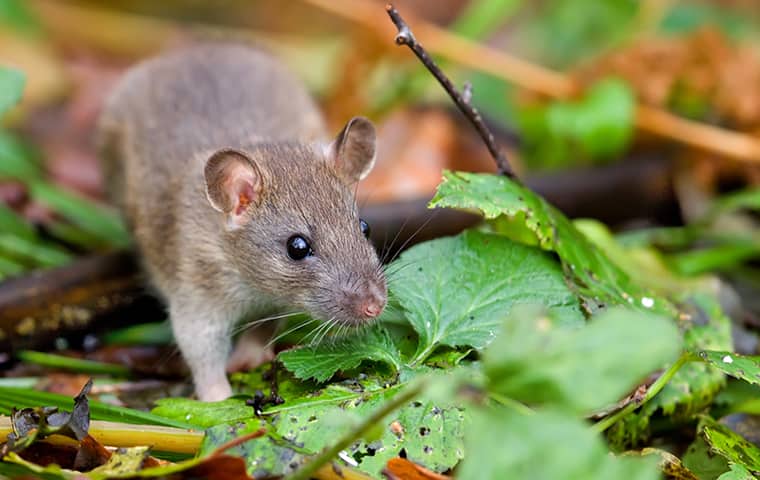As the refreshing chill of fall envelops us and the foliage displays its stunning orange and red hues, many of us arent the only ones preparing for the impending cold. Rodents, especially mice and rats, are also stirring, in search of warmth and shelter, often encroaching upon our homes. For those wishing to keep these unwelcome intruders at bay without resorting to harmful chemicals, natural rodent repellents for fall present an effective and eco-friendly solution.

Grasping the Rodent Issue
Before we explore the solutions, it's essential to know why rodents become a heightened concern as fall rolls in. With the drop in temperatures, these small pests seek warmth and nourishment, frequently finding refuge in our basements, attics, and sometimes even inside walls. Mice, with their knack for squeezing through tiny gaps, can be particularly bothersome. A single female mouse can produce up to 10 litters annually, averaging around six babies each time; this can swiftly lead to an overwhelming infestation if not handled promptly.
Benefits of Choosing Natural Repellents
Traditional rodent control methods often utilize poisons and traps, posing risks to children, pets, and the environment. Alternatively, natural rodent repellents harness the power of specific scents and materials that rodents find unpleasant, effectively driving them away without inflicting harm. These methods are not only safer but also promote sustainability.
The Efficacy of Essential Oils
Essential oils are a favored option for natural rodent management. Peppermint oil, in particular, is well-known for its strong scent that rodents despise. To implement this method, soak some cotton balls in peppermint oil and strategically place them in areas where rodents are often seen. This will not only act as a deterrent for mice and rats but will also leave your space smelling clean and inviting. Eucalyptus oil is another potent option, as it emits a scent that rodents find off-putting.
Plants and Herbs That Deter Rodents
Several herbs and plants work effectively to repel rodents. One effective strategy is to plant mint around the perimeter of your home, providing a natural barrier. Bay leaves are another exceptional choice; rodents typically steer clear of places where these leaves are scattered. Moreover, you can create sachets filled with dried herbs like rosemary, thyme, and cloves to place in drawers and cupboards.
DIY Rodent Repellent Sprays
Making a homemade rodent repellent spray is both straightforward and economical. A simple concoction of water, vinegar, and a few drops of your preferred essential oil can be sprayed around key entry points such as doors and windows. The strong odor of vinegar enhances the repellent properties of the essential oils.
Creating Natural Barriers and Maintaining Cleanliness
Alongside employing repellents, it's crucial to keep a tidy home and close off potential entry points. Rodents are attracted to food remnants and clutter, so a regular cleaning routine and proper food storage can significantly decrease the chances of an infestation. Check your home for gaps and cracks and seal them with steel wool or caulk, as mice can gnaw through many common materials.
Additional Tips for Rodent Management
Using natural rodent repellents is just one aspect of a broader rodent control strategy. Keeping your garden well-maintained, with trimmed bushes and trees distanced from the house, can also help deter these pests. Additionally, ensuring a neat yard and storing firewood away from the home will render it less inviting to rodents. For a detailed discussion on natural alternatives, check out natural rodenticide alternatives to deepen your understanding.
If you're looking for more insights on how to naturally eliminate mice, take a look at Healthline's comprehensive guide on the subject.

Frequently Asked Questions
What scents repel rodents?
Rodents tend to avoid strong scents such as peppermint, eucalyptus, and vinegar. These can be utilized in various forms, including essential oils or sprays.
How can I stop rodents from entering my home?
The most effective prevention strategy is a combination of sealing potential entry points, maintaining cleanliness, and deploying natural repellents like essential oils and herbs. You can learn more about non-toxic rat poison alternatives to help in this effort.
Are natural rodent repellents safe for pets?
Generally, natural rodent repellents are safe for pets. However, it's wise to keep essential oils out of their reach as ingesting them in large quantities can be harmful. Be sure to read up on baking soda and cornmeal bait to explore more options.
For a deeper understanding of handling rodent infestations naturally, consider visiting Healthline's comprehensive guide on the subject.
